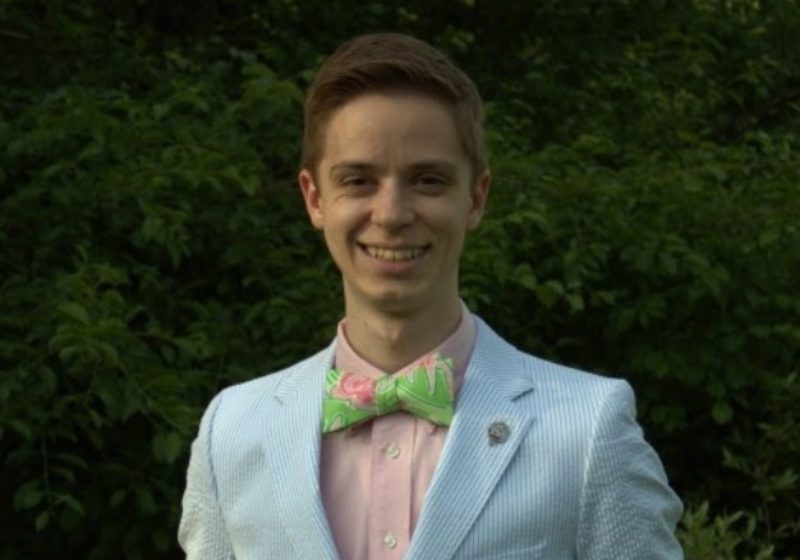Scientist. Psychologist. Trailblazer.
Malcolm Sutherland-Foggio is a current Take 5 Scholar studying “The Intersection of Climate and Society.” On campus, he has served as an RA for Gilbert Housing and a research intern for the Jamieson Lab. He was also an active member of Phi Kappa Tau and served as both the Philanthropy Chair and Executive Vice President. As an undergraduate student, Sutherland-Foggio majored in Psychology and Business.
He is also the Founder and Ex-Officio Chairman of Make Some Noise: Cure Kids Cancer Foundation, established in 2009 to raise funds for childhood cancer research and increase public awareness of childhood cancers. Sutherland-Foggio started the project after finishing his treatment for Ewing’s sarcoma, a very aggressive bone cancer. “My tumor was the size of a cantaloupe, which was pretty jarring for the doctors because normally Ewing’s tumors are millimeters.”
During his treatment process, he discovered that pediatric cancer receives very little research funding, with funds split amongst over 20 types of cancers. Therefore, Sutherland-Foggio recruited his mother to help him start a foundation that exclusively funds pediatric cancer research. “We hit the ground running and had raised nearly $2 million by the time I was 18,” he said. “Make Some Noise took a lot of my time with fundraising, meetings, and the lot; I even dedicated my high school summers to travelling around the country with my mom and displaying the National Angel Quilt, which is a quilt we created to honor the memories of children that lost their cancer battles.”
His fascination with healthcare systems drove him to study abroad in Italy spring semester of his junior year. There, Sutherland-Foggio participated in research comparing the Italian mental health system to that of the United States, focusing on New York. “It’s impossible to compare Italy to the U.S. because each state handles mental health differently,” he said.
Sutherland-Foggio was intrigued. “The general result of my paper was that Italy’s system is leagues above New York. Not only is mental health care affordable for everyone, it is guaranteed as a constitutional right (along with general health care).”
Sutherland-Foggio attributes this to the structure of the system. “Socialized [healthcare] is comprehensive and has led to much better outcomes for Italians than New Yorkers,” he explained. “One of the most fundamental differences is that New York (and many other states) have laws that consider people with mental illness to be dangerous, and perceived danger is used as a reason to institutionalize people. In Italy, there is no assumption that people with mental illness are dangerous.”
In addition to differences in mental health systems, Italy’s penal system approaches crime and punishment much differently than the U.S. “It’s a bit complicated, but generally punishment is assessed based more on the individual rather than the crime,” Sutherland-Foggio said. “We have a lot to learn from the Italians when it comes to healthcare, mental healthcare, and criminal justice.”
Both a scientist and a student, Sutherland-Foggio offers advice to undergraduates just beginning their research exploration: “The first thing to do is go on the department website and look through the faculty. Find someone that is doing research that you are interested in and then reach out to the lab. Another good option is to try and find friends in different labs. They can tell you what it’s like working [on that] research.”
After UR, Sutherland-Foggio plans on attending graduate school. “I’m applying to Ph.D. programs in clinical psychology. I want to do research on pediatric cancer patients and how that trauma impacts their post-cancer lives.”




